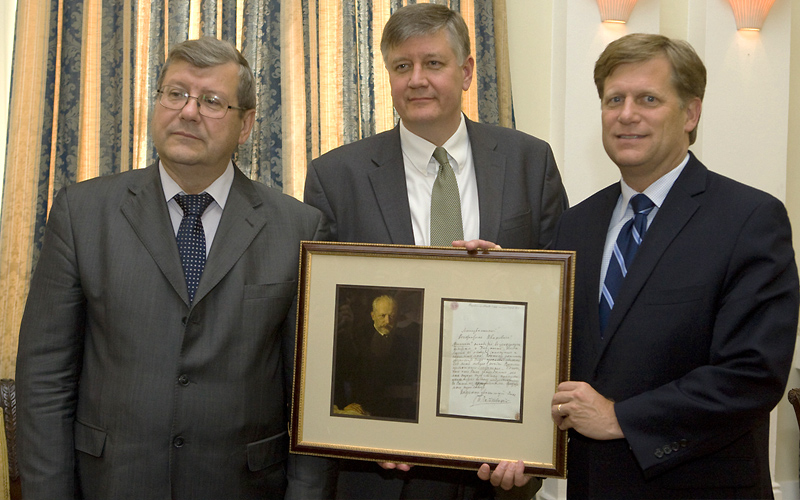Lost Letters by Catherine the Great, Tchaikovsky Returned to Russia

U.S. investigators have recovered and returned historical documents that were stolen two decades ago from Russia's archives, including letters by Catherine the Great and composer Pyotr Ilyich Tchaikovsky
The eight documents, which had been missing since the early 1990s, are among dozens of historical papers suspected to have been smuggled out of the country after the chaotic collapse of the Soviet Union. An investigation by U.S. Immigration and Customs Enforcement (ICE) was prompted after the papers were put up for auction on American websites, with prices ranging from $300 to $15,000.
"One state ceased to exist and the new state was barely functioning. If it weren't for the investigation, none of these documents would have been returned," the head of Russia's state archive agency, Andrei Artizov, was quoted as saying by Reuters.
The documents, which had been taken from archives in St. Petersburg and Moscow, were officially handed over in a repatriation ceremony at the residence of the U.S. ambassador in Moscow last week, according to ICE. No criminal charges have been filed to date, a spokesperson for the agency told LiveScience.
Among the texts was a letter from Tchaikovsky to writer Konstantin Zvantsev dated Feb. 11, 1876. At the time, Tchaikovsky was interested in using a libretto that Zvantsev had written for his composition "Francesca da Rimini."
The United States also returned two 18th-century decrees and a letter by Catherine the Great, as well as a 1905 decree by Emperor Nicholas II, the last czar of Russia, who was executed by the Bolsheviks.
The repatriation builds on previous recoveries of documents pilfered from Russia's archives after the fall of the Soviet Union. In 2010, U.S. investigators returned a bundle of 11 texts, mostly imperial decrees, which were reported stolen from the archives in Moscow and St. Petersburg between 1994 and 2002.
Sign up for the Live Science daily newsletter now
Get the world’s most fascinating discoveries delivered straight to your inbox.
Follow Megan Gannon on Twitter and Google+. Follow us @livescience, Facebook & Google+. Original article on LiveScience.com.










